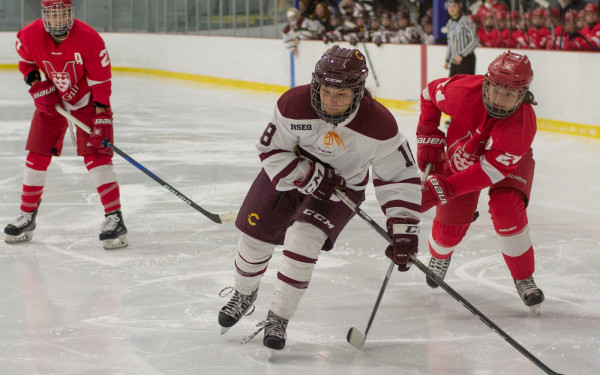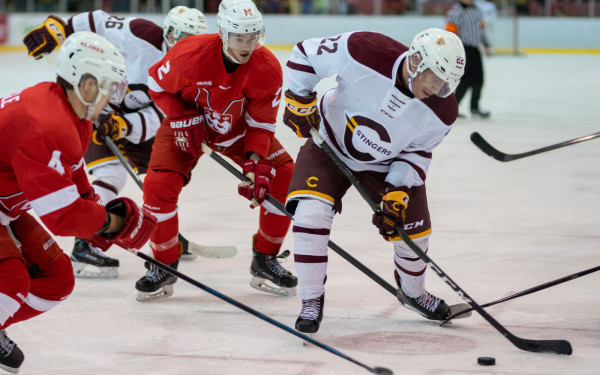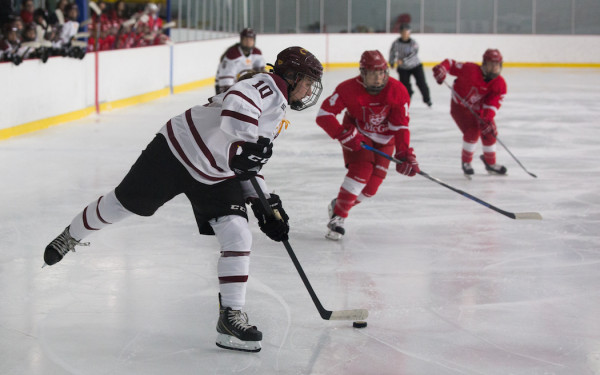Queer Bloc: Reaching New Heights in a Safe and Positive Environment
New Bouldering Community for LGBTQ+ Groups to Climb
On Chabanel St., music blasted from the bouldering gym Bloc Shop Chabanel. With a chill, almost club-like atmosphere, a DJ played dance beats and people were having drinks. Those who entered strapped on shoes specifically designed for hooking your toes tightly onto surfaces, and rubbing chalk powder onto their hands as they prepared to climb. On their shirts, a sticker with their name and gender were visible.
Avid climbers Simon Rouillard and Daniel Baylis started Queer Bloc. Partnering with different rock climbing gyms across the city, Rouillard and Baylis have built an inclusive space for queer atheltes intersecting between different marginalized gender, sexual and cultural identities. This is the sixth edition of their monthly gathering hosted by the group since it first emerged in April.
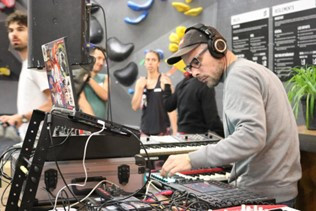
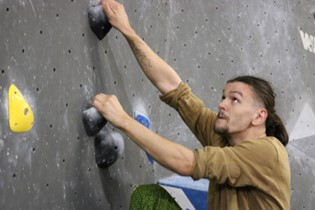
When Rouillard first started bouldering, he found it intimidating. He believes that the sport has for a long time been perceived as dominated by cis-heterosexual white men.
However, Rouillard and his group of friends noticed that they weren’t the only members of the queer community that enjoyed climbing. Through a push for a more inclusive and less intimidating space for the queer community, Rouillard and company decided to create Queer Bloc.
“We thought, ‘Hey, maybe we should have a group so we can actually meet, create bonds with each other within our community and remind people that we have a space in this kind of sport,’” Rouillard explained.
Yan Bertrand, a Ph.D. student at the Université de Montréal in Public Health has been bouldering for seven years. When he first started bouldering seven years ago, he didn’t find the sport inclusive. “Most shops catered to white hetero dudes and it wasn’t diverse for marginalized people,” he said.
For a long time, Bertrand was the only openly gay man training at the Bloc Shop. When he hung out with certain athletes, they would always introduce him as the gay friend to newcomers, he explained.
“This mentality [of being the gay friend] has definitely gone away now and people have realized it’s not an OK thing to say anymore,” Bertrand said.
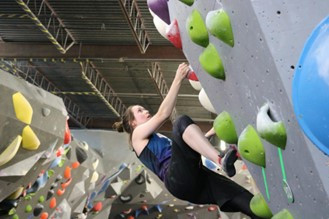
With the inclusion of Queer Bloc, Bertrand says he’s comfortable bringing his friends as the culture is beginning to change. He believes the movement has had an impactful role in changing problematic aspects of the bouldering community in Montreal.
Fred Saltos, a queer man from Ecuador, has lived in Montreal for three years and has attended Queer Bloc since May. He began rock-climbing mountains at 14 and he has loved it since. Bouldering reminds Saltos of his country and it’s why he attends the events.
Saltos believes that Queer Bloc has built a safe space for athletes like him. He explained that in his home country, being gay openly makes life difficult as society continually judges queer people.
“It's nice to have a space where nobody is gonna judge you, and that’s open for everyone,” Saltos said.
Queer Bloc shifts around at multiple bouldering shops. It’s hosted around Montreal to build a polyamorous relationship with the community, explained Rouillard. It’s been held four times at Bloc Shop Chabanel and their Hochelaga location, once at Cafe Bloc and once at Nomad Bloc. Most shops have been open with the idea of the community circulating around the city, stated Rouillard.
The queer bouldering community has also seen growth since the emergence of Queer Bloc. About 100 athletes attend each event, with a mix of regulars and newcomers each time. Their Instagram is also nearing 800 followers. The community has been extremely positive with the group, explained Rouillard. Among the reactions was gratitude–there was finally a queer group for climbers in Montreal. Queer bouldering clubs have been emerging a little bit everywhere in Canada in cities like Vancouver, Toronto, and cities in the United States.
Rouillard believes that queer people tend to gravitate towards bouldering as it’s a sport that’s more individualistic but still has a degree of camaraderie.
“[Climbing is] really more about your own journey and exploring your limit. You’re exploring your mental strength, your physical strength and your flexibility. The better you get at this sport, the more you get a sense of pride, and of accomplishment,” said Rouillard.
“It’s nice to have a space where nobody is gonna judge you, and that’s open for everyone,” — Fred Saltos, climber
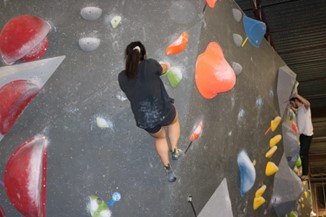
Bertrand explained that he enjoys bouldering for these reasons as it has been a major benefit for his mental health, building a routine and staying in shape.
Saltos said he loves the sport as it requires a strong spiritual mindset. When he climbs, he materializes his problems into the rocks and tries to solve them by climbing.
Queer Bloc ensures that the bouldering gym maintains a language that’s respectful and inclusive to the community, explained Rouillard.
“[The concept] may seem simple, but it isn’t–and we always remind the people with whom we collaborate with. [...] We always make sure that they address our members in a way that is respectful and remind them that there are some [gender non-conforming members],” said Rouillard. He continued, saying that certain gyms have even begun to change their membership forms to include non-binary members, since they only had male or female as gender options.
These gyms have also included gender-neutral washrooms and locker rooms to accommodate non-binary athletes on the occasions they attend Queer Bloc gatherings, added Rouillard.
Queer Bloc ensures inclusivity with their collaborators who represent different margins of the LGBTQ+ community. This includes the graphic designers who upload announcements on their Instagram.
Rouillard is proud of the queer grassroots community he has built with his team and the love the sport has gathered in the process. “We want to make sure that we’re not erased, that we’re remembered and that we have our space within the sport.”
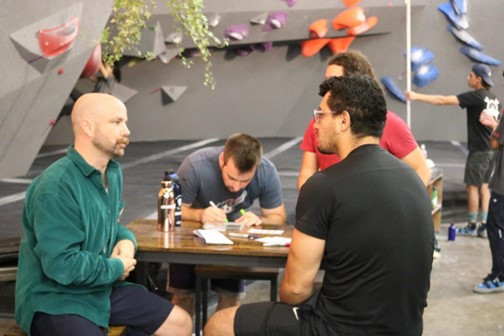

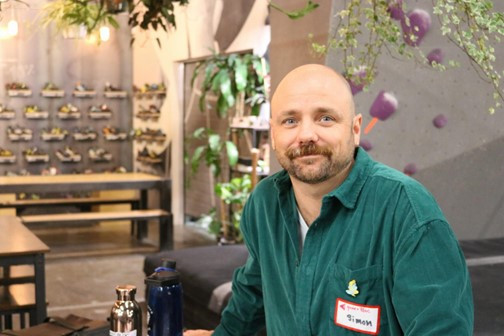
_600_832_s.png)

4_600_375_90_s_c1.jpg)
